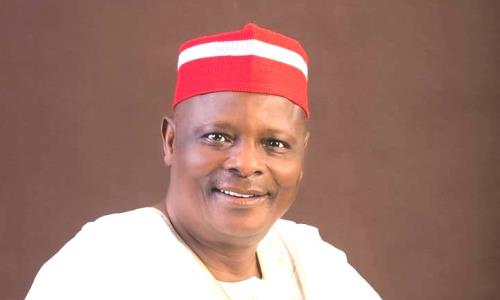
Plans by opposition leaders to form a united front against the ruling All Progressives Congress (APC) in the 2027 presidential election have suffered a significant setback. Senator Rabiu Kwankwaso, leader of the New Nigeria Peoples Party (NNPP), has categorically dismissed any possibility of collaboration with former Vice President Atiku Abubakar and former Anambra State Governor Peter Obi, citing a deep lack of trust and past political betrayals. Kwankwaso’s remarks came in a radio interview, further stoking the already intense political atmosphere in Nigeria.
Speaking on a BBC Hausa program, Kwankwaso rejected growing speculations about a potential political alliance and power-sharing agreement involving himself, Atiku, and Obi, all of whom have had tumultuous relationships with the People’s Democratic Party (PDP). Kwankwaso, a former governor of Kano State and the NNPP’s 2023 presidential candidate, emphasized that claims of a 2027 pact were unfounded, labeling them as nothing but a “ruse” designed to mislead the public.
Atiku, Obi, and Kwankwaso were all prominent figures within the PDP before they defected from the party at different times. While Atiku returned and remained in the PDP after his failed 2019 and 2023 presidential bids, both Obi and Kwankwaso left the party due to what they described as internal political instability and a lack of trust in its leadership. For Kwankwaso, these past experiences have not been easy to forget, and he remains highly critical of the PDP’s leadership.
In his interview, Kwankwaso strongly condemned the alleged efforts by certain PDP leaders to manipulate northern voters ahead of the 2027 elections. According to him, some politicians who have done little to advance the interests of the northern region are now working tirelessly to stoke regional sentiments and secure political power for themselves in the coming election. This, he argued, was part of a broader pattern of deceitful tactics that had characterized the PDP’s leadership in recent years.
“The politics of deceit that we experienced in the PDP is something I cannot forget,” Kwankwaso stated. “It is unfortunate that after so many of us were humiliated and forced to leave the party, those responsible for these actions are now trying to rebuild their political fortunes by exploiting the very same northern sentiments they once took for granted.”
Kwankwaso further emphasized that he had not met with Atiku or Obi to discuss any potential cooperation or power-sharing arrangement. “I have not met with Atiku, and I have not spoken to Peter Obi,” he stated, adding that he had made a conscious decision to wait until the end of 2024 to focus on issues of governance rather than speculative political alliances.
He also addressed a particularly damaging rumor that had circulated within political circles, which claimed that Atiku, Kwankwaso, and Obi had agreed to a power-sharing pact. The rumor suggested that Atiku would rule for four years, Kwankwaso for another four, and Obi for eight years thereafter. According to Kwankwaso, such claims were not only false but also deeply damaging to his reputation and political credibility. “The most infuriating part is that these lies were being spread by so-called elder statesmen—men in their 70s and 80s—who should know better. These falsehoods were part of the reason why I and others left the PDP in the first place,” Kwankwaso lamented.
This latest round of political infighting highlights the deep divisions within the Nigerian opposition ahead of the 2027 presidential race. Many politicians, including Kwankwaso, have expressed concerns that the political atmosphere is being manipulated by figures who have historically failed to deliver on their promises. These frustrations reflect the broader disillusionment many Nigerians feel with the existing political elite, especially as the country grapples with critical issues such as poverty, insecurity, and economic instability.
Kwankwaso’s statement also raises important questions about the future of the NNPP and other opposition parties. Despite his dismissive stance on the possibility of an alliance with Atiku and Obi, Kwankwaso remains a significant figure in northern Nigerian politics, and his influence in the 2027 elections cannot be easily dismissed. However, he has made it clear that any potential collaboration would need to be based on genuine trust and a shared vision for the country.
“If we are to form any kind of alliance, it must be built on trust, mutual respect, and a deep understanding of Nigeria’s history and needs,” he said. “For me to accept any alliance arrangements, we must go back to the roots and acknowledge the failures of the past. Only then can we work towards a future that is truly beneficial for the Nigerian people.”
Kwankwaso concluded by reflecting on the bitterness of the past and the enduring consequences of political betrayal. “Even if all that such persons can do now is to express remorse or seek forgiveness, it won’t change the fact that people like me were deceived and humiliated in the past. That history cannot be erased,” he stated. “If we could read the secret history of our enemies, we would find enough sorrow and suffering to disarm all hostility.”
As the political maneuvering intensifies in the lead-up to the 2027 elections, Kwankwaso’s comments serve as a stark reminder of the fractures within Nigeria’s opposition politics and the challenges that lie ahead in building a united front against the ruling APC.
Comments